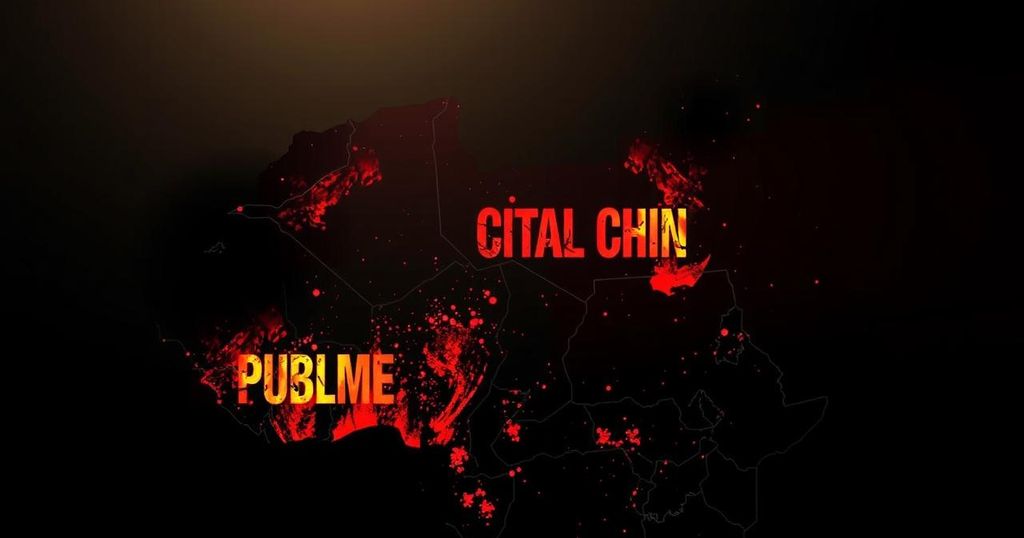Global news
AFRICA, ARMED CONFLICT LOCATION & EVENT DATA, CASUALTIES, CIVIL WAR, EUROPE, HUMANITARIAN AID, HUMANITARIAN CRISIS, KHARTOUM, KHARTOUM STATE, LONDON, LONDON SCHOOL OF HYGIENE AND TROPICAL, MAY, MAYSOON DAHAB, MEDICINE, RAPID SUPPORT FORCES, SUDAN, UNITED KINGDOM, UNITED NATIONS, VOA
Marcus Li
0 Comments
New Study Uncovers Alarming Death Tolls in Sudan’s Civil War
Research from the London School of Hygiene and Tropical Medicine indicates that the death toll in Sudan’s civil war is significantly underestimated, with Khartoum State alone recording over 61,000 deaths from April 2023 to June 2024. Preventable diseases and hunger are the leading causes of mortality, and the ongoing conflict has created a severe humanitarian crisis, with millions needing food aid.
New research has revealed that the death toll resulting from Sudan’s civil war is significantly higher than earlier estimates suggested. Conducted by the London School of Hygiene and Tropical Medicine, the study indicates that in just Khartoum State between April 2023 and June 2024, over 61,000 deaths from all causes occurred, marking a 50% increase in the pre-war death rate. Of these deaths, an estimated 26,000 were due to violence, which exceeds previously reported figures for the entire country.
The study reveals alarming trends, with over 90% of deaths—both from violence and other causes—remaining unrecorded in Khartoum State, indicating an underestimated nationwide death toll. The primary contributors to these fatalities were preventable diseases and starvation. The conflict, which began in April 2023 as a power struggle between the army and the paramilitary Rapid Support Forces, has severely hindered access to healthcare and accurate mortality data.
Utilizing a method known as “capture-recapture analysis,” researchers analyzed data from three different sources to estimate the number of unrecorded deaths. This innovative technique allows for a more comprehensive understanding of mortality rates in regions with incomplete data. According to lead author Maysoon Dahab, this approach facilitates the identification of gaps in recorded information, ultimately yielding more accurate estimates of deaths within war-torn areas.
Additionally, Doctors Without Borders reported that since January, one in six patients treated at their Khartoum hospital were children under the age of 15, many suffering from severe injuries and malnutrition. The United Nations reports that the conflict has displaced 11 million people, with approximately 25 million individuals—half of Sudan’s population—requiring urgent food assistance, escalating the situation to a worldwide hunger crisis.
Maysoon Dahab emphasized the necessity for international assistance to combat this growing tragedy, calling for increased support for inaccessible populations. Furthermore, U.S. Special Envoy to Sudan, Thomas Perriello, underscored ongoing international efforts to halt the violence, expressing solidarity with those striving for peace. In contrast, the recent veto by Russia of a UN resolution calling for a ceasefire has drawn sharp criticism, notably from British Foreign Secretary David Lammy, who condemned the act as disgraceful.
The civil war in Sudan erupted in April 2023, leading to a severe humanitarian crisis characterized by extreme violence and mass displacement. The conflict is primarily between the Sudanese army and the paramilitary Rapid Support Forces, causing widespread destruction of government services and healthcare. Accurate reporting of casualties has been challenging due to the ongoing violence, prompting various organizations to employ new methodologies to assess the impact of the war on civilian populations. Understanding mortality statistics is crucial for formulating effective humanitarian responses and international aid efforts.
The findings from the London School of Hygiene and Tropical Medicine highlight the urgent need for a reevaluation of the toll the Sudanese civil war is taking on civilians. With tens of thousands of unrecorded deaths and millions facing hunger, the international community must intensify efforts to address the humanitarian crisis and facilitate an end to the conflict. The ignored voices and suffering of those in affected regions necessitate immediate and sustained attention from global leaders and organizations.
Original Source: www.voanews.com




Post Comment